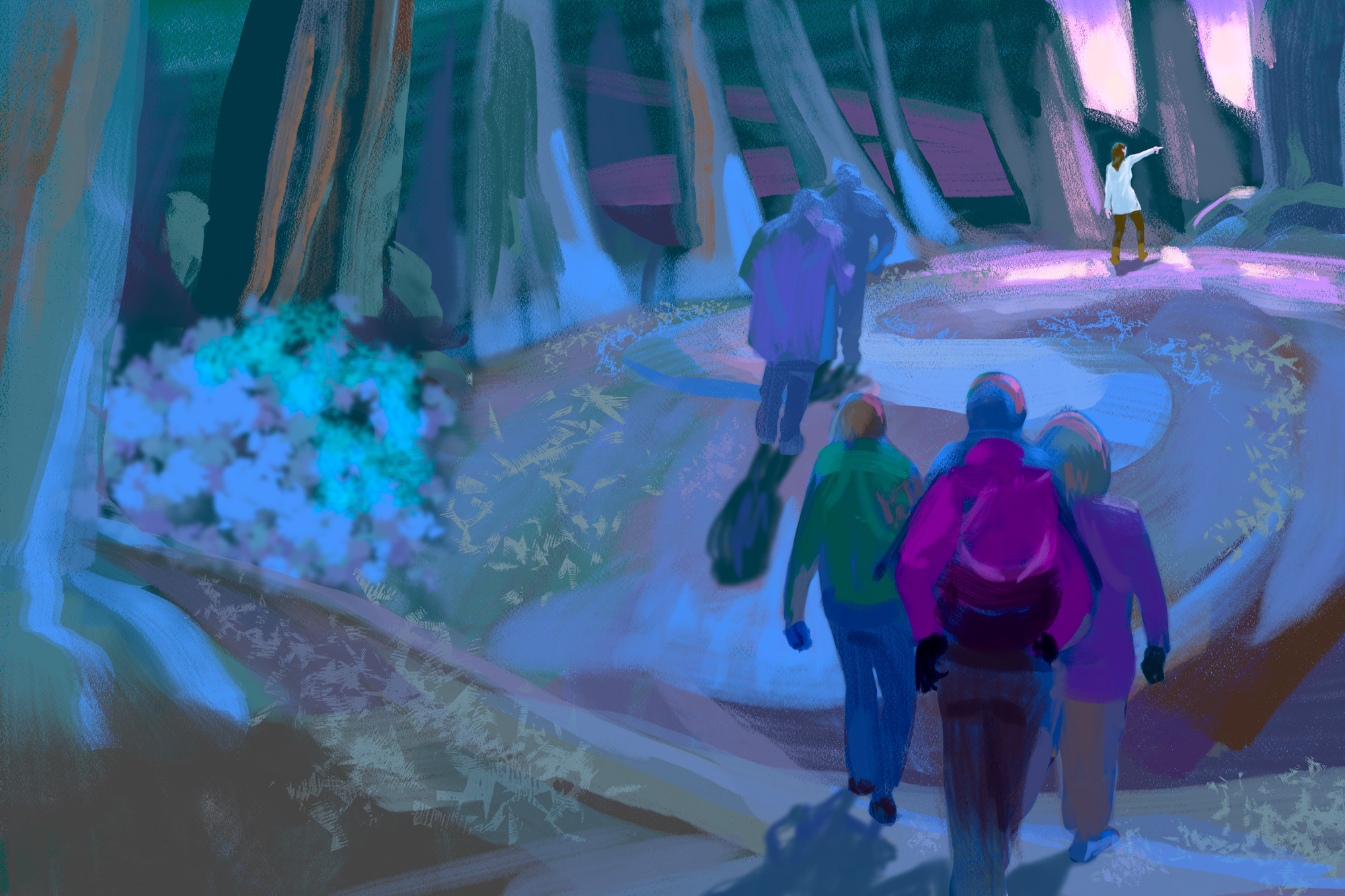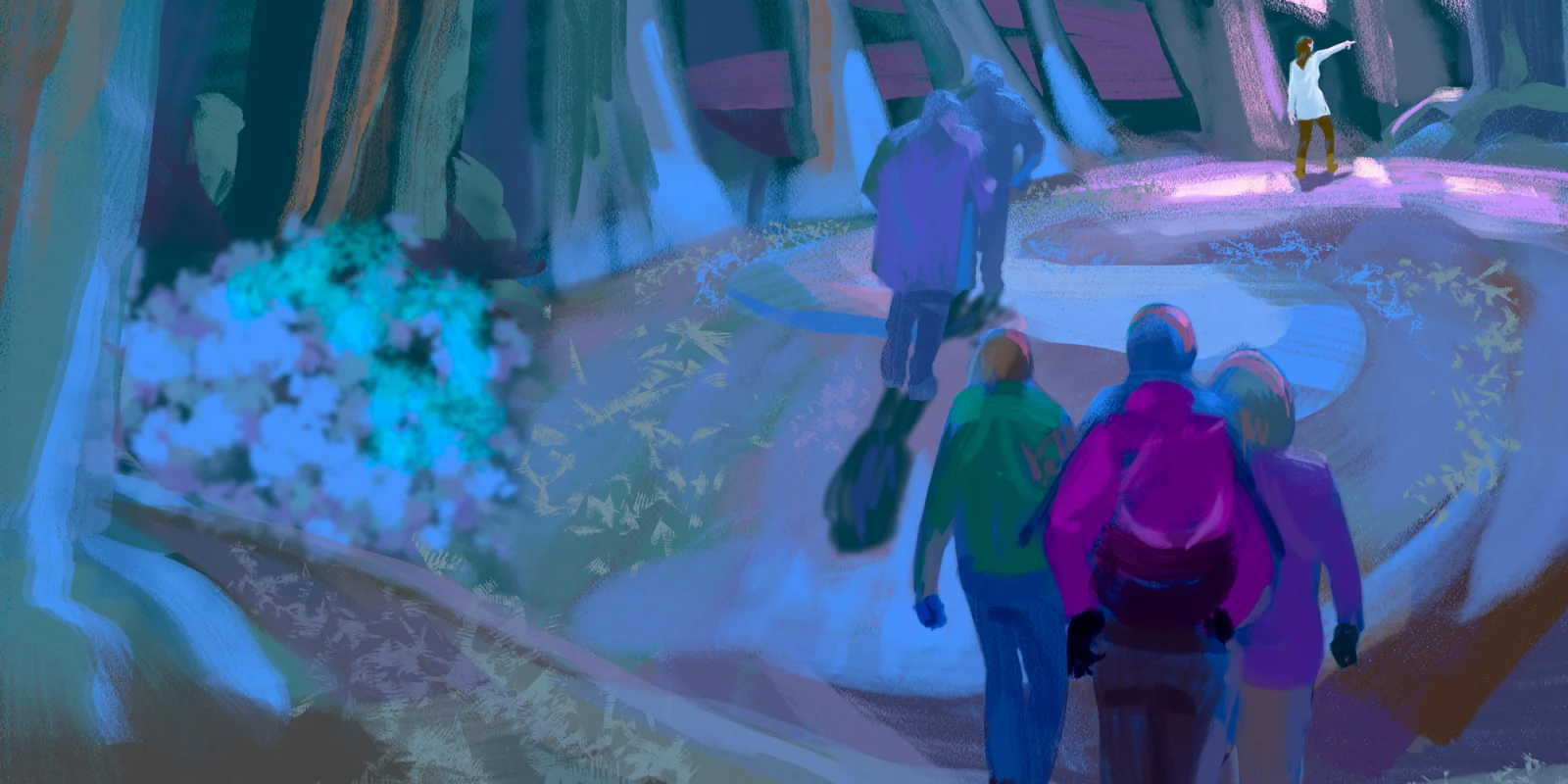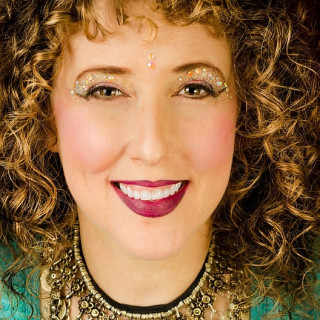
In less than 30 minutes you will all finally be physicians! And this summer you’ll be set loose on your very own patients. How exciting is that? Maybe a little nerve-racking.
During your career (depending on specialty and work ethic) you may care for more than 100,000 patients—only a few will live in your heart forever. You will join them on a sacred journey for two. Trust them. They will guide you from nervous new doctor and teach you how to be a healer.
As a new intern, I was assigned to Emily. She had idiopathic bronchiectasis and refused to take her meds so the transplant team signed off on her case. They abandoned us. We were both 25. Sobbing uncontrollably with her oximiter alarm shrilling, she looked to me for help. I didn’t know how to help her die. So I snuck my dog, “Happy,” into her room for midnight excursions. With her portable oxygen tank rolling behind us, we’d hold hands and disappear across the hospital parking lot into a blanket of grass and gaze at the stars where she’d share her grief of never giving birth or finding her soulmate. Emily and I became soul sisters on an adventure of a lifetime. Until the day, in her bedroom sitting beside her body wrapped in a Mickey Mouse blanket, I signed her over to the morgue.
Emily has never left my side.
Patients like Emily will hold your hand and lead you to places where there is no algorithm, no attending, where you have no earthly idea what you’re doing. All you’ve got is each other.
After Emily, Harold stumbled awkwardly into my heart. A loner who distrusted technology (and doctors), he lived in the woods caretaking a wildlife sanctuary with no electricity. No phone or car. But he had great health insurance (through his employer). His ex-girlfriend recommended me. So he’d hitchhike to my office—three hours each way. One day he came in, his back covered in nodules. I excised one, sewed him up, gave him a kiss on the forehead, a slip for a chest X-ray, and an appointment to return next week. It was metastatic lung cancer. He chose chemo, moved to the city, got a cell phone, and quickly spiraled to his death. I got him back to his cabin. He died the next day. His ashes now food for the forest he so loved—where I visit him each fall.
I think Emily kind of helped me with Harold. You’re never really alone. Some patients follow you forever.
It’s weird that I only remember one patient from med school—Veronica—end-stage kidney disease. I still see her alone in her crib in that dark hospital room where I’d lift her up and sing her to sleep in a rocking chair. My Pediatrics attending walked by (and this landed in my permanent record) and he said, “Dr. Wible, you are a doctor when your patients need a doctor and a mother when they need a mother.”
I’m proof you don’t need to maintain professional distance. I prescribe professional closeness. You can be a doctor—and be the real you. Is it legal to kiss dying patients? I don’t care. I do what’s right for patients. You will stray from evidence-based guidelines to do the same—because what patients truly need has no ICD or CPT codes and never requires a prior authorization. As an intern do something so epic it can’t fit into an EMR.
Our biggest threat to patient relationships is what I call “assembly-line medicine.” I’m a womb-to-tomb, till-death-do-us-part physician. My dream of being a small-town family doc doing house calls was way too big for my little cubicle. If your dream is bigger than your cubicle, leave your cubicle. You can practice medicine your way—as an employee, a business owner, or an entrepreneur.
If you’re freaking out over your debt or end up hating residency, don’t despair. You can launch your own practice with one or two years of post-graduate training—and if you register it as a nonprofit, you can totally get your loans forgiven! Doctors I know are doing this now!
As a physician employee in a big-box clinic, I was so miserable—even suicidal. Then I did something really crazy—I asked my patients for help. I invited them to design their own ideal clinic. I invited them to write my job description for me. And I promised to do whatever they wanted (as long as it was basically legal). They shared 100 pages of their most creative ideas. We adopted 90 percent of their feedback and opened our community clinic one month later without any outside funding—where I’ve never turned any patient away for the last 14 years for lack of money and this is the first ideal clinic designed entirely by patients.
My patients saved my career—and my life (’cause I was thinking of working at Starbucks and doing something totally different—but I probably wouldn’t have gotten the job because I was overqualified). Luckily my patients came to my rescue and I want to assure you that your relationships with patients will save you from lawsuits. (Patients don’t sue doctors they love.) I’ve been running a physician suicide hotline since surviving my own close call. Several docs told me their suicides were actually averted by a patient thank you card! Keep your thank you cards. Read them often. On your worst night, those letters may save your life.
After speaking to thousands of suicidal physicians who survived, I noticed one trait they share (very unusual among doctors)—they asked for help. The most common phrase I hear: “I would have been one of your statistics, but you called me back right away.” They’re shocked that I called them back. I ask, “When you’re on call, do you respond right away? Why not do that for each other?”
In your last few minutes as a medical student, take a good look at the person to your right and left. Hold hands for a minute please. I’m asking you to please be on call for each other.
Look, listen, and feel—notice when a doctor is struggling. Look up at all your beautiful, proud parents celebrating you today. Promise to watch over each other so no parent ever gets a call from the police telling them their child has died in residency.
I was tasked with delivering a few uplifting words today—and they’re coming! For now though you might want to keep holding hands. This is tough to hear, but so important for your future.
A med student in the Army Reserve told me she was less stressed in Afghanistan during active sniper fire than med school. Here’s why: She had total trust in her comrades. She knew if killed by enemy fire, she would be brought home, covered in an American flag, and honored with a proper burial. They had her back. In med school, she never knew who would stab her in the back. Trying to change that culture starts here with your generation.
We are brothers and sisters in medicine. Protect and defend each other. If a resident is being pimped with esoteric questions, say, “I don’t think any of us know the answer. Let’s look it up together.” Please do that.
When in doubt, hold hands.
Be like the preschoolers on the wooded path by my house each morning. I don’t know if you’ve heard of this, getting rope trained. There’s a rope they hold on to and they each put one hand on the rope so they learn how to walk in a line equally spaced and they are the cutest thing in Oregon with all their tiny colorful rain coats and little tiny rain boots. When one kid slows down to look at a mushroom, they all stop to look.
That’s what we should be doing. Stick together. Hold hands.
I’ve taken hundreds of doctors on hot springs retreats, soaking together in the bubbling lithium-infused water under the stars in the ancient Oregon forest where Harold once lived (where his ashes are). We go out on a cliff overlooking the Breitenbush River—so amazing! Wild how Harold’s kind of helping me heal doctors now. Weirdly, more than once a doctor at the retreat has told me, “I don’t know why I’m here. I don’t even like doctors.” I think that was Harold’s opening line during our first office visit. Took me years to deconstruct that comment from a physician.
Why do doctors dislike doctors? Hurt people hurt people. Wounded healers wound each other. Most people don’t bond over codes, crash carts, and stillborns. Bonding over trauma creates trauma bonds (leading to maladaptive drug and alcohol use to numb the pain). Befriend each other by doing stuff normal people do. Go on a hike and cook dinner together. As interns, the best way to prevent trauma bonds is to first bond over your hopes and dreams.
Now to celebrate . . .
My number one recommendation—always keep your umbilical cord plugged into your dream.
Reflect back on medical school. Remember how you felt on your favorite rotation or with that attending who inspired you to go for your dreams. Maybe you have a patient like Emily or Harold or Veronica who touched your heart. Go back to those precious moments, and ask yourself these three questions: 1) Do you ever feel so excited you can’t wait to get to work Monday morning? 2) Are you having so much fun at work you would do it for free? 3) Do you love your job so much you never want to retire?
Raise your hand if you answered yes to any of these questions. Oh good! Your dreams are still alive.
To those of you who raised your hands. Seemed to be the majority. I want you to realize you are very fortunate to still have passion for your career (which you should have when you graduate medical school).
During a keynote in Vegas, I asked those same questions to 4,000 doctors. Everyone was laughing (to hide the pain of losing their dreams). I can still answer yes to all three questions—and so could about 20 doctors (out of 4,000). May you be one of those 20 doctors to create such an amazing life in medicine, you’ll never need a vacation.
Inspired by a Zen poet, I’ll conclude with this: physicians who are masters in the art of medicine make little distinction between their work and their play, their labor and their leisure, their mind and their body, their education and their recreation, their love and their religion. They hardly know which is which and simply pursue whatever they do with excellence and grace, leaving others to decide whether they are working or playing. To them they are always doing both.
May you be blessed on your journey.
Congratulations!
This speech was given to the 2019 graduating class of The Frank H. Netter M.D. School of Medicine at Quinnipiac University. Video and full transcript of the speech can be found here.
Illustration by Jennifer Bogartz






